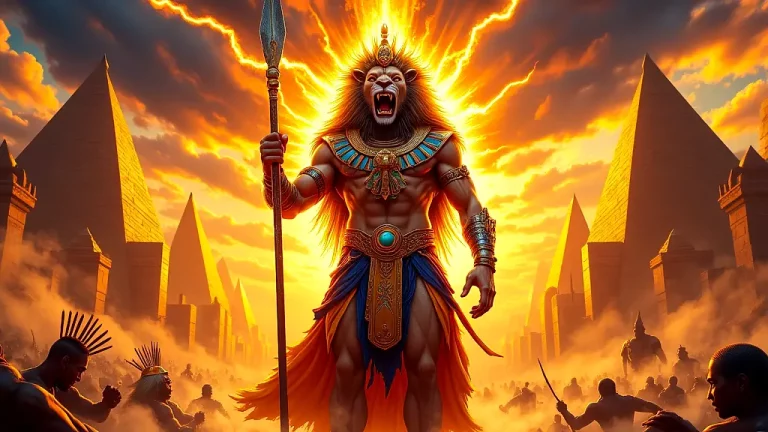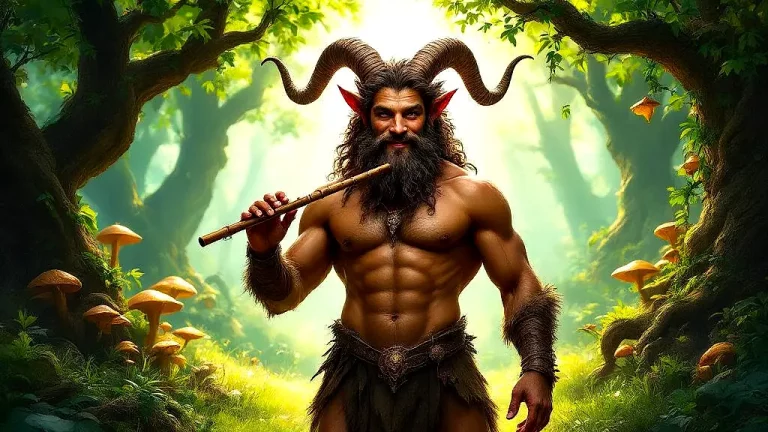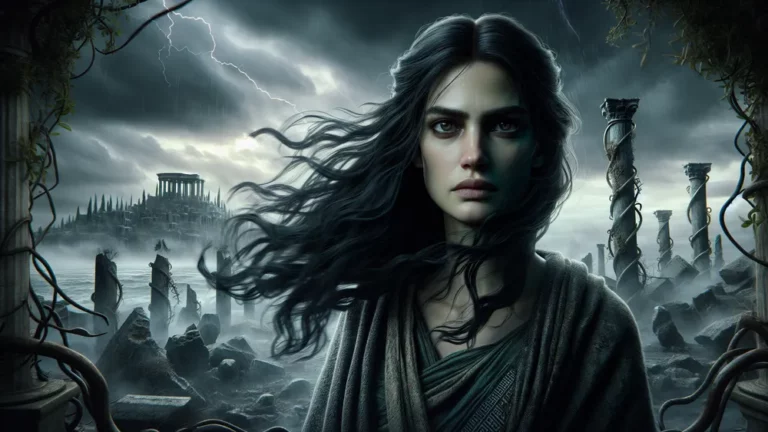Aphrodite: Greek Goddess Of Love, Beauty, And Desire
When you think of Greek mythology, one person coming to mind could be Aphrodite, the goddess of love, beauty, and desire. Every bit like a modern-day celebrity, her effect goes beyond her direct circle. Today’s celebrities set trends and shape public views; similarly, Aphrodite influenced gods and humans alike.
Key Points:
- Aphrodite is the Greek goddess of love, beauty, and desire, symbolized by the dove, swan, and myrtle.
- Two different myths explain her origin: born from sea foam (emphasizing raw, primal aspects of love) or as the daughter of Zeus and Dione (highlight her divine family ties).
- She is a key figure in Greek mythology, often stirring up love and desire in both gods and humans.
- Aphrodite played major roles in Greek myths, such as the Judgment of Paris (leading to the Trojan War), her tragic romance with Adonis, and her secret affair with Ares.
- The goddess had many children, including Eros (god of love), Phobos and Deimos (representatives of fear and dread in war).
- Her influence can be traced in many Greek heroes’ stories, like Odysseus and Aeneas.
- Aphrodite’s temples and festivals, such as Aphrodisia and Adonia, reflect her widespread worship in ancient Greece and her impact on everyday life and spiritual practices.
This blog post helps you go into the many sides of Aphrodite, looking closely at her beginnings, her parts in different stories, and how she influenced both divine and human domains. Whether Greek mythology is new to you or you’re seeking a deeper understanding, you will find a detailed look at one of the most fascinating figures in the ancient world.
Aphrodite: Overview and Key Facts
| Key Point | Description |
|---|---|
| Name | Aphrodite |
| Area | Love, Beauty, Desire |
| Marks | Dove, Swan, Myrtle, Rose, Scallop Shell |
| Parents | Uranus (in one myth), Zeus and Dione (in another myth) |
| Partners | Hephaestus (husband), Ares (lover) |
| Kids | Eros (Cupid), Phobos, Deimos, Harmonia, Aeneas |
| Roman Version | Venus |
| Main Stories | Born from sea foam, Judgment of Paris, Love affair with Ares, passion for Adonis |
| Main Temples | Temple of Aphrodite at Knidos, Sanctuary of Aphrodite at Paphos, Temple of Aphrodite at Corinth |
| Festivals | Aphrodisia, Adonia |
| Traits | Beauty, Forever Youth, Unstoppable Charm |
| Cultural Effect | Affected art, literature, and culture throughout ancient and modern times |
Beginnings and Birth of Aphrodite
Knowing Aphrodite, we need to look at the interesting accounts that are about her beginning. But before we do, let’s look into her start. Let’s look into the stories of her birth.

Two Stories About Aphrodite’s Birth
In Greek stories, there are two main tales about how Aphrodite came to be, each giving a different view on her origins. In the first and maybe most famous story, Aphrodite comes out of the sea foam. After Cronus attacked his father Uranus, he threw the cut-off pieces into the ocean.
From the mix of sea foam and divine stuff, Aphrodite was born, fully grown and brightly beautiful. Think of a movie scene where a stunning person appears from the water, full of beauty and charm.
This version of her birth means her connection to the basic forces of nature and the ocean, symbolizing the raw and powerful parts of love and beauty. According to the second story, Aphrodite is the daughter of Zeus and Dione. Here, she comes from a regular divine family. Zeus, the king of the gods, and Dione, who is less known, are her parents.
This version includes her more directly into the group of gods, showing her divine background and family ties. The importance of these birth stories is that they show Aphrodite’s two sides. The sea foam story focuses on her basic and wild aspects, while the Zeus and Dione story highlights her place in the family’s order of the gods.

These different origins reflect Aphrodite’s many sides, having both the wild, uncontrollable sides of love and the more organized, family aspects of divine relationships.
- Sea Foam Birth: Shows primal and natural forces.
- Zeus and Dione Birth: Focuses on structured divine family.
Aphrodite’s birth tales reveal her wild and family sides, with one story portraying her emerging from the sea foam, symbolizing primal forces, and the other as the daughter of Zeus and Dione, emphasizing her divine family connections.
What Aphrodite Does in Greek Myths
Aphrodite’s main roles in Greek stories are about love, beauty, and desire, making her a key figure in these areas. Think of her like a top matchmaker, making connections of love and attraction between gods and people alike.
She is often shown as the height of beauty, able to charm anyone who looks her way, like a piece of art that you can’t stop looking at. Her power also covers the area of desire, where she can spark passion and wanting in the hearts of both gods and humans.

And whether it’s making romantic pairs or causing problems with unreturned love, Aphrodite’s presence is felt in every part of affection and attraction, showing her essential role in Greek stories.
Aphrodite’s Symbols and Special Animals
Aphrodite is connected with different symbols and animals that mean love, beauty, and desire. The dove is a bird you know as a symbol of peace and love. Also, it is often used in weddings and romantic pictures. Known for its grace and beauty, the swan stands for the elegance and charm that Aphrodite has.

The myrtle plant, with sweet-smelling flowers, is another symbol linked to her. People in ancient times often used it in rituals to honor the goddess. These symbols and animals don’t just highlight her traits but also remind us of her large impact in both the natural and divine worlds.
- Dove: Symbol of peace and love.
- Swan: Stands for grace and beauty.
- Myrtle: Sweet-smelling plant used in rituals honoring Aphrodite.
Big Stories Featuring Aphrodite
Now that we’ve looked at Aphrodite’s origins and symbols, we should dig into some of the most interesting myths that include her a lot.
The Judgment of Paris
The Judgment of Paris is an important story in Greek mythology that starts the events leading to the Trojan War. The story starts at the wedding of Peleus and Thetis, where all the gods were invited except Eris, the goddess of discord. As a reaction, Eris threw a golden apple which had the words “To the fairest” written on it among the guests.
This apple was the prize in a goddess beauty contest between Hera, Athena, and Aphrodite. Think of it like a beauty contest where winning meant gaining great honor and power. The job of choosing the fairest goddess was given to Paris, a prince of Troy known for his fair judgment. Each goddess tried to bribe Paris with offers.
Hera gave power and kingship over all of Asia, Athena gave wisdom and skill in battle, and Aphrodite gave the love of the most beautiful mortal, Helen of Sparta. Imagine being Paris, having to pick one that would change everything. Paris finally gave the golden apple to Aphrodite, swayed by her promise of Helen’s love. This choice had big consequences. By picking Aphrodite, Paris started events that led to the famous conflict.

Helen was taken by Paris, with Aphrodite’s help, leading directly to the Trojan War. Helen’s husband, Menelaus, king of Sparta, asked other Greek kings to help get his wife back, creating a huge group against Troy. This story shows how divine actions affect human life deeply.
Aphrodite’s role in the Judgment of Paris shows her power over love and desire, but it also means these strong feelings can lead to fights and wars. The story reminds us how the actions of gods and humans are closely linked in Greek myths, where gods’ and goddesses’ choices have big impacts on human history.
Aphrodite and Adonis
The romance of Aphrodite and Adonis is one of the most touching tales in Greek mythology, which shows themes of love and loss. Adonis was a mortal with amazing beauty, so attractive that even the goddess of love herself fell deeply for him.
Think about a love story where a divine being is so taken by a mortal that she breaks the natural order to be with him. Aphrodite took Adonis under her care, warning him about the dangers of the wild and telling him to be careful while hunting. Despite her warnings, Adonis was fatally injured by a wild boar during a hunt.
Aphrodite, heartbroken, rushed to him, but she could not save him. Her tears mixed with his blood, creating the anemone flower, a symbol of how short life and beauty can be. This story looks deeply into the themes of love and loss, showing how even divine love cannot escape death.
The relationship between Aphrodite and Adonis is like tragic romances in books and movies, where deep love is followed by great sadness. Aphrodite’s sadness over Adonis’s death shows the vulnerability and emotions of the gods, making them relatable to human feelings of love and grief.
The story is a powerful reminder of how life and beauty don’t last long, and how love, despite its strength, often brings great loss.

Aphrodite’s love for Adonis, a mortal of exceptional beauty, ended tragically with his death, symbolized by the anemone flower, revealing the fleeting nature of love and life, even for gods.
Aphrodite and Ares
The relationship between Aphrodite and Ares is one of the most well-known love stories in Greek myths, full of passion and secrets. Aphrodite, who is the goddess of love, was married to Hephaestus, the god of blacksmiths and craftsmanship. But she wanted Ares, the god of war.
Their secret relationship can be compared to a modern scandal that grabs everyone’s attention and gossip. Eventually, Hephaestus caught them in a fine, unbreakable net, exposing their cheating to the other gods. This public embarrassment had big consequences, highlighting the themes of jealousy, revenge, and the complications of relationships among gods. The relationship between Aphrodite and Ares highlights the mix of love and war, two powerful forces that often clash.
It also means the gods have weaknesses and imperfections, making them more understandable to human experiences.
Aphrodite’s Impact on Gods and People
After looking at some of the most interesting myths about Aphrodite, let us now look at how she affected both gods and humans.
Aphrodite’s Kids
Aphrodite, the goddess of love, beauty, and want, had many important kids who had big parts in Greek mythology. Among them are:
- Eros: He is often shown as a winged boy with a bow and arrow. Eros is the god of love and sexual want. You might know him as the idea behind Cupid in modern Valentine’s Day pictures, showing love’s surprise.
- Phobos: The idea of fear, Phobos often went with his father, Ares, to war. His presence put terror in the hearts of fighters, which means the mental parts of fighting.
- Deimos: Twin brother to Phobos, Deimos represented dread and panic. Together, they meant the wild and scary parts of war, highlighting the emotional pain of conflict.
These kids of Aphrodite, each meaning different parts of human life, from the joy of love to the fear of battle, showing the many ways their divine mother influenced them.
Aphrodite’s Influence on Heroes
You can see Aphrodite’s impact on Greek heroes in many myths, where her help was key to their journeys and wins. Take Odysseus, the smart hero from Homer’s “Odyssey”. Though Aphrodite isn’t directly involved with Odysseus as much as with other heroes, her impact is there through her son, Eros, and the different love meetings Odysseus has.

One big example is the meeting with Circe, the enchantress, who first turns Odysseus’s men into pigs. With Hermes‘ help, who is often linked to Aphrodite because they both act as messengers, Odysseus can fight off Circe’s magic and finally get her help.
This means how the divine power of love and want, shown by Aphrodite, can shape the hero’s path in surprising ways. Aphrodite’s role is even bigger in the tale of Aeneas, the Trojan hero and star of Virgil’s “Aeneid”. As his divine mother, Aphrodite actively guides and protects him during his tough trip to form a new home in Italy.
One important moment is when Aeneas is wrecked and lands in Carthage. Aphrodite sets up a meeting between Aeneas and Queen Dido, using her powers to make a deep love affair between them. This relationship, although it ends sadly, delays Aeneas and adds deep feelings to his quest.
Aphrodite’s touch keeps Aeneas under divine care, showing her role as a caring and protective figure in his heroic story.
Aphrodite’s Rivalries and Conflicts
Aphrodite had conflicts with other goddesses like Hera and Athena. These are well-known in Greek stories. One of the most famous instances is the Judgment of Paris. Here, Paris, a mortal, had to decide who among Hera, Athena, and Aphrodite was the fairest.
Each goddess gave Paris a tempting offer: Hera promised power, Athena gave wisdom and skill in battle, and Aphrodite promised the love of Helen of Sparta, the most beautiful mortal woman. Paris awarded the golden apple to Aphrodite, which led to the abduction of Helen and the Trojan War.
This conflict means the competitive nature of the goddesses and the big outcomes of their conflicts, since the war caused a lot of suffering and changed many lives. Another big conflict is between Aphrodite and Athena. They often had problems because of their different areas and values. Aphrodite stood for love, beauty, and want, while Athena was about wisdom, war, and strategy.
Their differing priorities caused several clashes, such as the one involving Diomedes during the Trojan War. Athena supported Diomedes in his battles. Meanwhile, Aphrodite tried to protect her son, Aeneas. In one fight, Diomedes hurt Aphrodite, and she had to go back to Olympus. This clash shows the tension between love and war and the personal stakes for the gods.
These conflicts not only mean the complicated relationships among the deities but also reflect the many sides of human experiences, where different desires and values often lead to strife.
Aphrodite’s conflicts with other goddesses like Hera and Athena, especially the Judgment of Paris and the clash between her values of love and beauty against Athena’s wisdom and war, reveal the competitive and impactful nature of their disputes, causing suffering and changing lives, reflecting the complexities of human desires and values.
Worship and Cult of Aphrodite
After looking into Aphrodite’s connections and fights, now we should look into how people worshipped and respected her in ancient Greek life.
Important Temples and Sanctuaries
Aphrodite was honored in many temples and sanctuaries all over the ancient Greek world. Each place showed her importance in different parts of life. These sacred places acted as centers where people could pray, offer sacrifices, and take part in rituals to honor the goddess of love, beauty, and desire.
For example, the Temple of Aphrodite at Paphos in Cyprus was one of the most famous. It was believed to be where Aphrodite was born. This temple attracted people from far away, much like how people today visit important historical or cultural sites. Another important place was the Temple of Aphrodite at Corinth.
This one played a key role in the city’s religious and social life, showing Aphrodite’s influence on both personal and community levels.
Below is a table listing some of the major temples and sanctuaries dedicated to Aphrodite, along with their locations and historical importance:
| Temple/Sanctuary | Location | Historical Importance |
|---|---|---|
| Temple of Aphrodite at Paphos | Paphos, Cyprus | Believed to be the birthplace of Aphrodite; major pilgrimage site. |
| Temple of Aphrodite at Corinth | Corinth, Greece | Important in the city’s religious and social life; linked with sacred prostitution. |
| Sanctuary of Aphrodite at Knidos | Knidos, Turkey | Famous for the statue of Aphrodite by Praxiteles, a celebrated sculpture. |
| Temple of Aphrodite Urania | Athens, Greece | Dedicated to Aphrodite Urania, the celestial aspect of the goddess. |
These temples and sanctuaries not only mean the widespread worship of Aphrodite but also show the different ways her divine influence was part of everyday life and spiritual practices of the ancient Greeks.
Festivals and Rituals
Festivals and rituals for Aphrodite were important in ancient Greek culture, showing the goddess’s place in both personal and community life. One of the biggest festivals was the Aphrodisia, held in cities like Athens and Corinth. During the Aphrodisia, people cleaned the temple with dove blood, a bird sacred to Aphrodite, and gave sacrifices and prayers to seek her favor in love and beauty.
The Adonia was another notable event, held to honor Aphrodite and her lover Adonis. Women planted “gardens of Adonis,” small pots with fast-growing seeds, which symbolized the shortness of life and love. These festivals were not just religious events but also social gatherings that brought people together, much like how modern holidays and celebrations unite us to honor shared traditions and beliefs.
Pantheon of Greek Gods
To really understand Aphrodite’s place in Greek myths, it’s key to know how she fits into the broader group of Greek gods and goddesses. The Greek group is a complicated and interesting mix of gods, each having their own different areas, stories, and traits.
For more details, you can check out this list of all the Greek Gods, which gives detailed information about each god and their role in old Greek religion and culture.
FAQs
1. What are the main symbols associated with Aphrodite?
The main symbols associated with Aphrodite include the dove, swan, and myrtle, each representing aspects of love, beauty, and desire.
2. How did Aphrodite influence the Trojan War?
Aphrodite influenced the Trojan War by promising Paris the love of Helen, which ultimately led to the conflict.
3. Who were Aphrodite’s most famous lovers?
Aphrodite’s most famous lovers include both mortals and gods, such as Ares and Adonis.
4. What are the key differences between Aphrodite and Venus?
The key differences between Aphrodite and Venus lie in their cultural contexts and specific attributes within Greek and Roman mythology, respectively.







